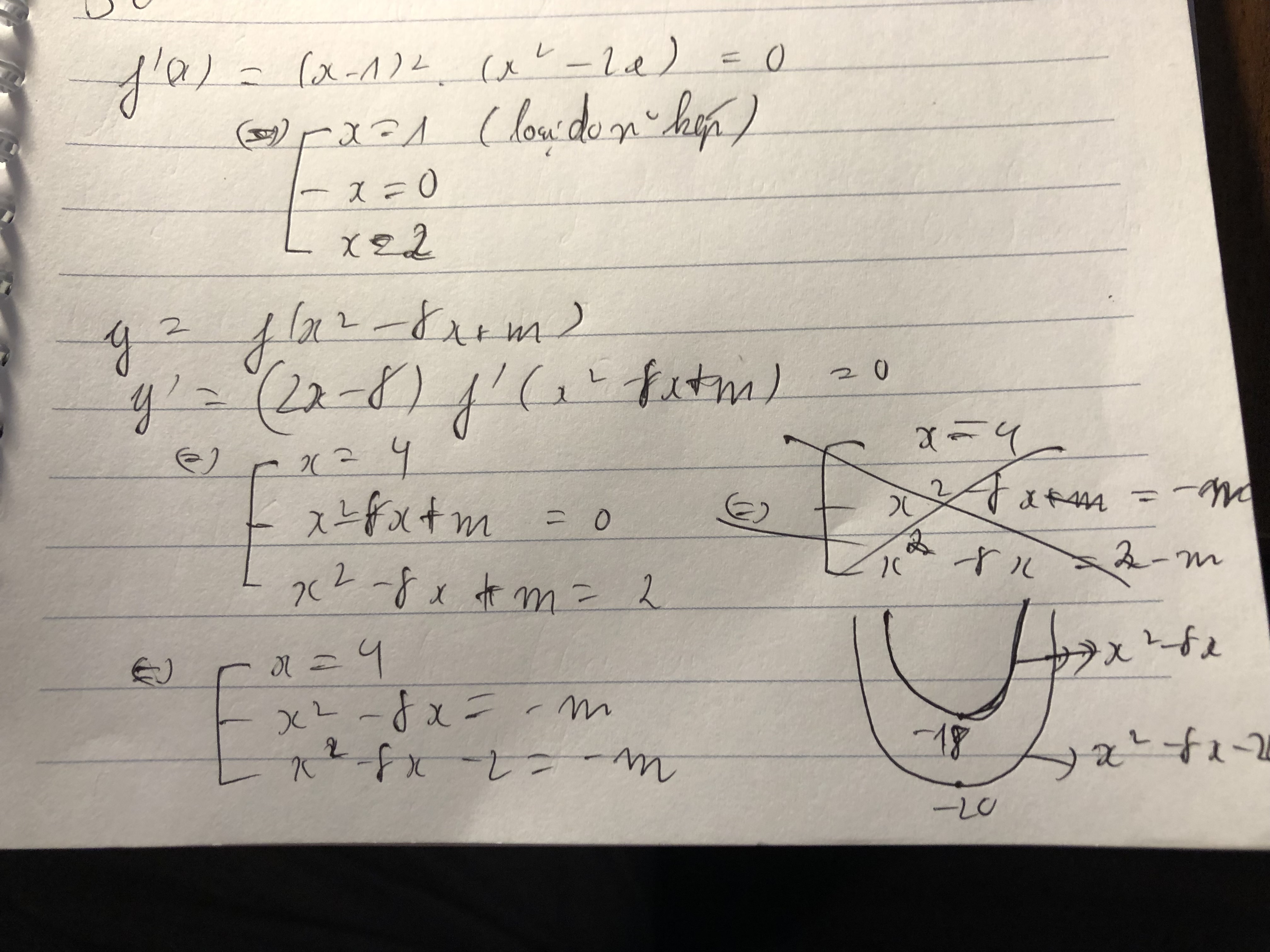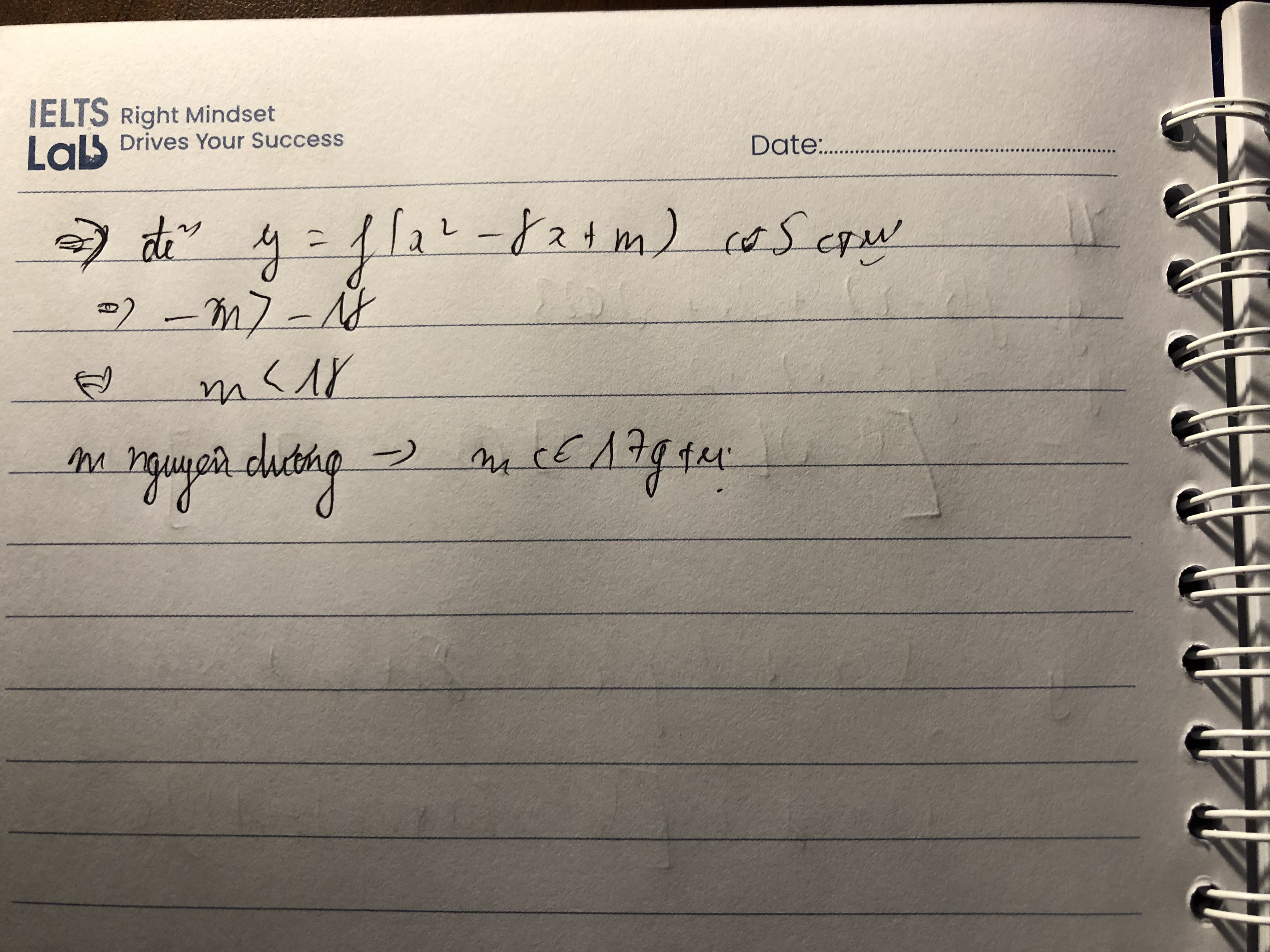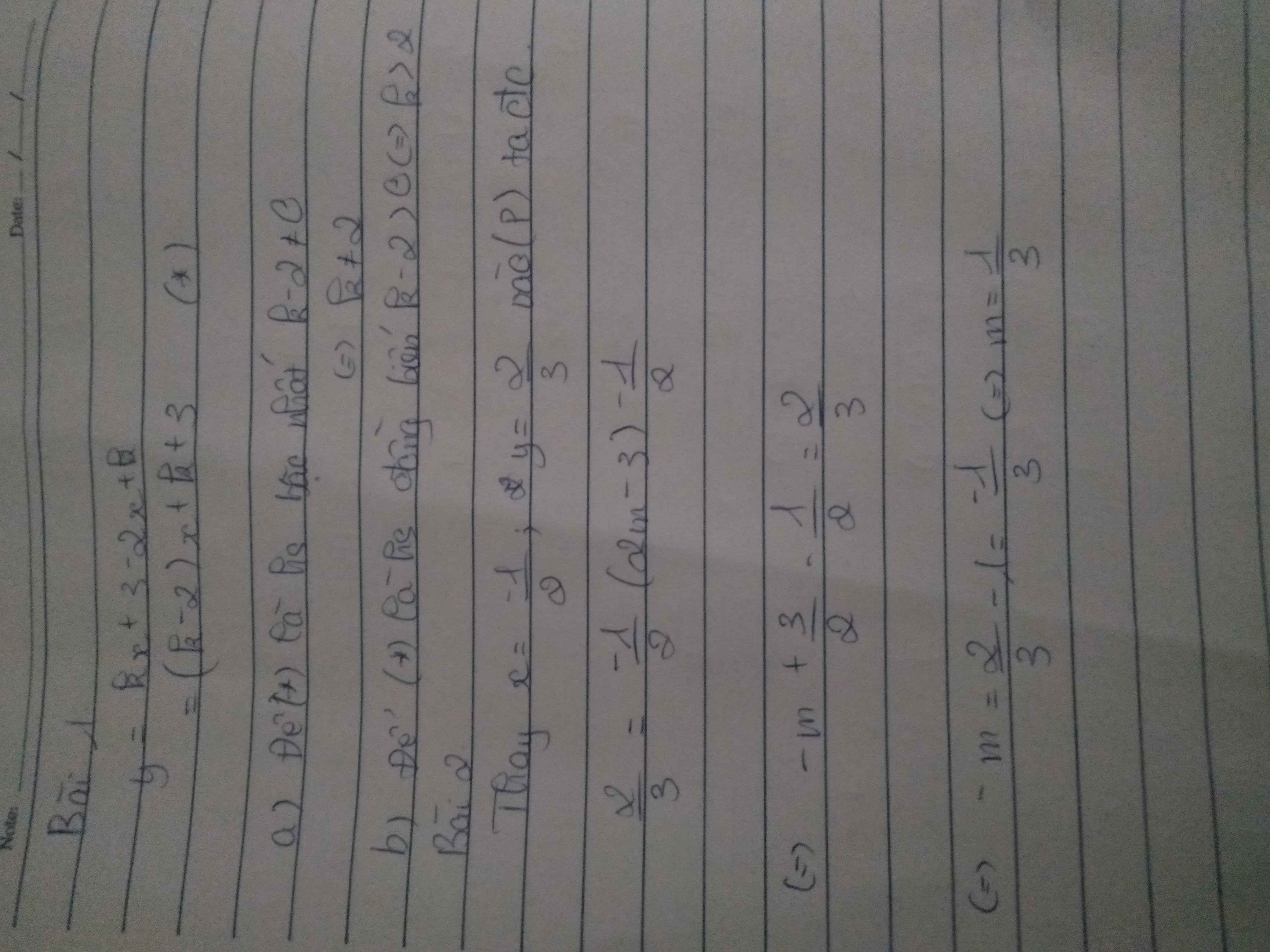Cho hàm số: \(y=-\dfrac{x^3}{3}+\left(a-1\right)x^2+\left(a+3\right)x-4\). Tìm a để hàm số đồng biến trên khoảng (0;3)
Hãy nhập câu hỏi của bạn vào đây, nếu là tài khoản VIP, bạn sẽ được ưu tiên trả lời.


\(y'=x^2-2\left(m-1\right)x+3\left(m-1\right)\)
Hàm đồng biến trên khoảng đã cho khi với mọi \(x>1\) ta luôn có:
\(g\left(x\right)=x^2-2\left(m-1\right)x+3\left(m-1\right)\ge0\)
\(\Rightarrow\min\limits_{x>1}g\left(x\right)\ge0\)
Do \(a=1>0;-\dfrac{b}{2a}=m-1\)
TH1: \(m-1\ge1\Rightarrow m\ge2\)
\(\Rightarrow g\left(x\right)_{min}=f\left(m-1\right)=\left(m-1\right)^2-2\left(m-1\right)^2+3\left(m-1\right)\ge0\)
\(\Rightarrow\left(m-1\right)\left(4-m\right)\ge0\Rightarrow1\le m\le4\Rightarrow2\le m\le4\)
TH2: \(m-1< 1\Rightarrow m< 2\Rightarrow g\left(x\right)_{min}=g\left(1\right)=m\ge0\)
Vậy \(0\le m\le4\)

y=sin x đồng biến trên \(\left(-\dfrac{\Omega}{2}+k2\Omega;\dfrac{\Omega}{2}+k2\Omega\right)\)
=>Hàm số y=sin x không thể đồng biến trên cả khoảng \(\left(0;\dfrac{5}{6}\Omega\right)\) được
=>Loại A
\(y=cosx\) đồng biến trên khoảng \(\left(-\Omega+k2\Omega;k2\Omega\right)\)
=>Hàm số y=cosx cũng không thể đồng biến trên khoảng \(\left(0;\dfrac{5}{6}\Omega\right)\)
=>Loại B
\(x\in\left(0;\dfrac{5}{6}\Omega\right)\)
=>\(x+\dfrac{\Omega}{3}\in\left(\dfrac{\Omega}{3};\dfrac{4}{3}\Omega\right)\)
=>\(y=sin\left(x+\dfrac{\Omega}{3}\right)\in\left[-\dfrac{\sqrt{3}}{2};\dfrac{\sqrt{3}}{2}\right]\)
=>Khi x tăng thì y chưa chắc tăng
=>Loại D
=>Chọn C

Bài 1:
a) Để hàm số y=(k-2)x+k+3 là hàm số bậc nhất thì \(k\ne2\)
b) Để hàm số y=(k-2)x+k+3 đồng biến trên R thì k-2>0
hay k>2
Bài 2:
Thay \(x=-\dfrac{1}{2}\) và \(y=\dfrac{2}{3}\) vào (D), ta được:
\(\left(2m-3\right)\cdot\dfrac{-1}{2}-\dfrac{1}{2}=\dfrac{2}{3}\)
\(\Leftrightarrow\left(2m-3\right)\cdot\dfrac{-1}{2}=\dfrac{2}{3}+\dfrac{1}{2}=\dfrac{7}{6}\)
\(\Leftrightarrow2m-3=\dfrac{7}{6}:\dfrac{-1}{2}=\dfrac{-7}{6}\cdot\dfrac{2}{1}=-\dfrac{14}{6}=-\dfrac{7}{3}\)
\(\Leftrightarrow2m=\dfrac{-7}{3}+3=\dfrac{-7}{3}+\dfrac{9}{3}=\dfrac{2}{3}\)
hay \(m=\dfrac{1}{3}\)



\(y'=-x^2+2\left(a-1\right)x+a+3\)
Hàm đồng biến trên khoảng đã cho khi với mọi \(x\in\left(0;3\right)\) ta có:
\(-x^2+2\left(a-1\right)x+a+3\ge0\)
\(\Leftrightarrow\left(2x+1\right)a\ge x^2+2x-3\)
\(\Rightarrow a\ge\dfrac{x^2+2x-3}{2x+1}\)
Xét hàm \(f\left(x\right)=\dfrac{x^2+2x-3}{2x+1}\) với \(x\in\left(0;3\right)\)
\(f'\left(x\right)=\dfrac{2\left(x^2+x+4\right)}{\left(2x+1\right)^2}>0\Rightarrow f\left(x\right)\) đồng biến
\(\Rightarrow f\left(x\right)< f\left(3\right)=\dfrac{12}{7}\Rightarrow a\ge\dfrac{12}{7}\)